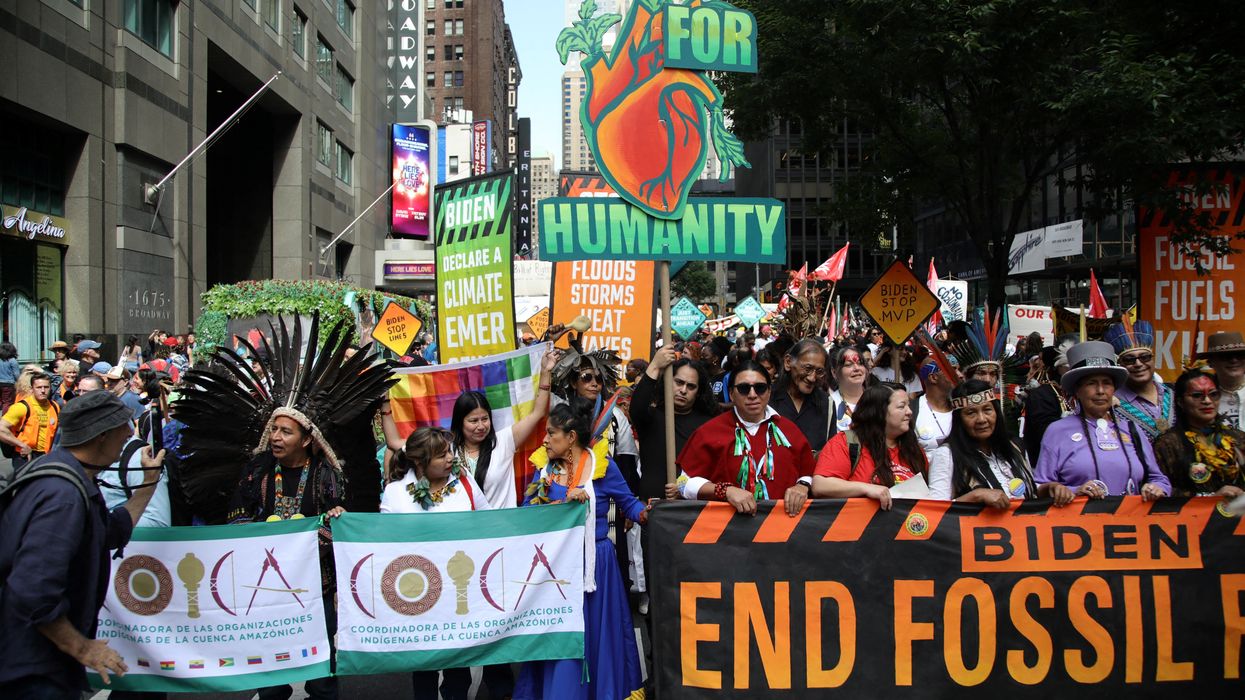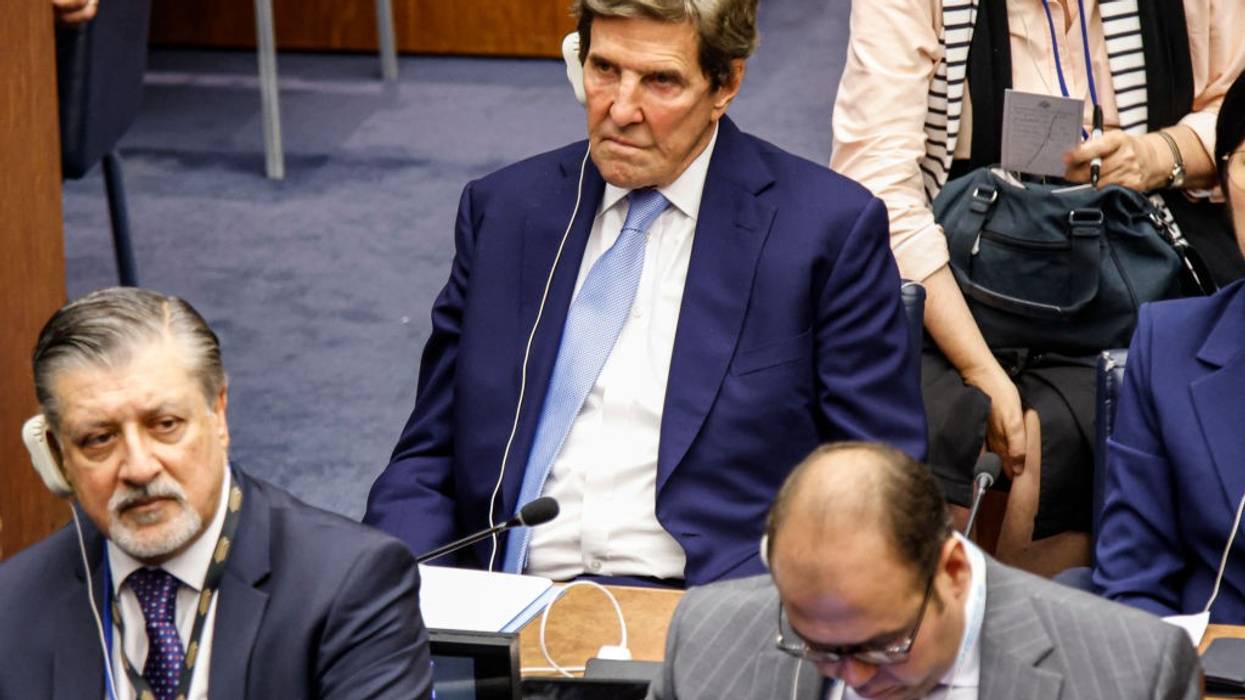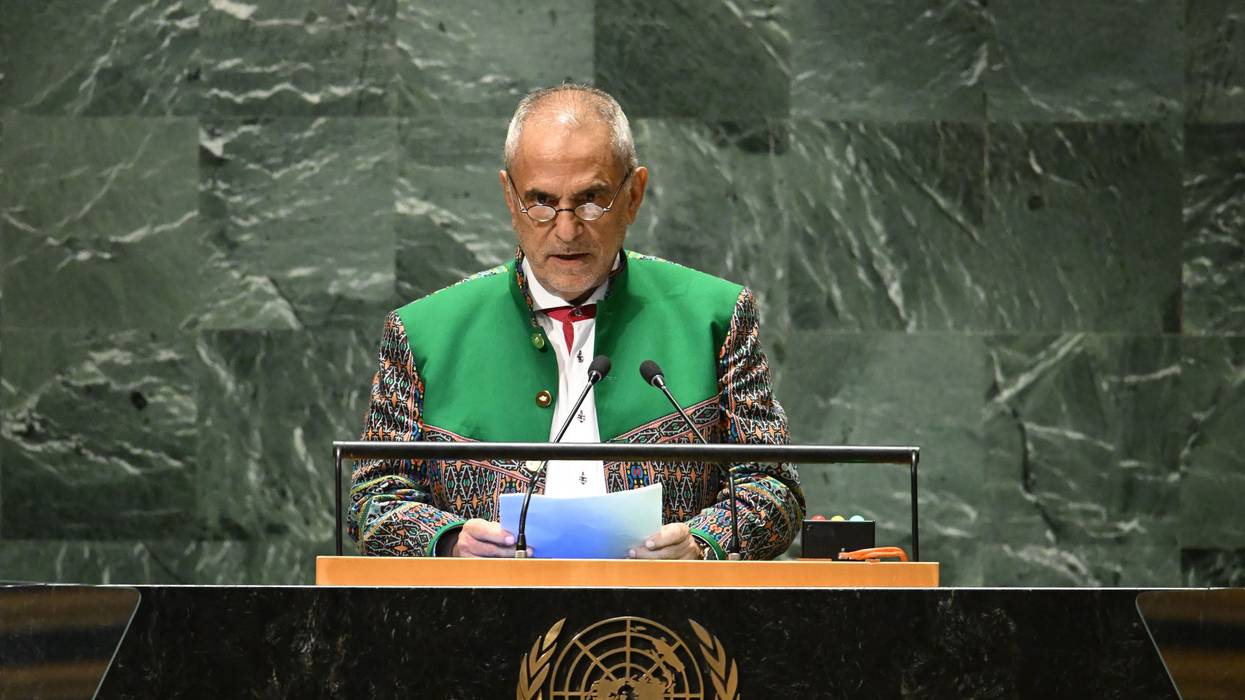Let Us Be the Parable of the Movement
More than a novel, this international public awareness campaign tells the story of how people can rise up and demand change to power our planet in a way that puts human survival before profit.
The apocalypse is not coming. The future is coming, and we don’t yet know what the future holds. Because the future isn’t set yet. It depends on the decisions human beings make right now.
These days, we are seeing more extreme weather events around the world, as the climate crisis escalates. While every individual weather event is a surprise, the overall pattern has long been predicted. Both by our scientists and by our artists. One such artist, Octavia Butler, wrote of a world torn by racism, misogyny, and climate disaster in her 1993 novel, Parable of the Sower.
Lauren Olumina, the protagonist, leads a band of characters to a safe haven on a ravaged planet. Butler had intended to create a Parable series, where the final book focused on climate solutions. Reportedly, she was frustrated in her various attempts to finish the series, because she was unable to envision climate solutions. I find this unsurprising because part of climate disinformation has included obscuring both the problem and all solutions that significantly disrupt the profitability of the fossil fuel industries. Perhaps because she lacked access to this crucial information, Butler never finished the project in her lifetime.
Climate Week was a glimpse of the power that this movement can hold as we move forward.
But a lot has changed since she passed away in 2006. There is a growing climate movement with powerful Black and Indigenous leadership. We have a clear vision of the solutions needed to solve the climate crisis. What we lack is the political will among elected officials and corporate leaders to make the large-scale changes necessary to ensure a livable planet.
And that is where our movements come in. At the Black Hive, we have developed a Black Climate Mandate that lays out the changes needed so that all Black people worldwide can thrive. Ultimately, we believe that our movement for climate justice can be Octavia Butler’s final book—Parable of the Movement. More than a novel, this international public awareness campaign tells the story of how people can rise up and demand change, can build the power to pressure political and industry leaders to divest from fossil fuels and to power our planet in a way that puts human survival before profit. And we don’t just wait for those in power to change—as we build our movement to demand change, we also build structures, networks, and resources for food and energy independence, community care and mutual aid, and climate resiliency.
Meanwhile, in order to ensure a livable future, we need to phase out fossil fuels and other dirty-energy industries, starting with an end to all direct and indirect subsidies and policy incentives these industries receive. As those industries end, we need a just transition for workers—making sure fossil fuel corporations provide retraining and transitioning them to new green jobs, and making sure that they can continue to make a living and support their families as we shift our economy.
We need to prioritize the needs and leadership of those most impacted by the crisis, particularly Indigenous communities. Their local ecological knowledge, lived experiences, and thought leadership are essential to tackling the climate crisis. This includes climate reparations for all frontline communities and workers who are harmed first and worst by both the climate crisis and the polluting industries driving the crisis.
Climate justice is part of a bigger vision of justice. Climate problems and solutions are deeply interconnected with all the other current planetary crises: war, poverty, pollution, forced migration, police and prison violence, and other forms of harm that happen when societies put profit over human safety and survival. All these harms need to be recognized and addressed in all climate policies and climate action strategies.
Recently, the Black Hive participated in New York Climate Week, and over 100,000 people took to the streets. This was an important demonstration to the U.N. Climate Ambition Summit that the people demand change. Our leaders need to listen, and the movement will keep building the pressure until they do.
In Parable of the Sower, the characters find their safe haven. But as the climate crisis escalates, there is no place that can be guaranteed as safe. Now is the time to fight for a bigger picture of justice and safety—one that is worldwide and where no one is left behind. It’s a tall order, and will require a mass movement. Climate Week was a glimpse of the power that this movement can hold as we move forward. Let us aspire to be a Parable of the Movement, Octavia Butler’s final book, the biggest battle in human history, in which—if enough people fight—we can win.


